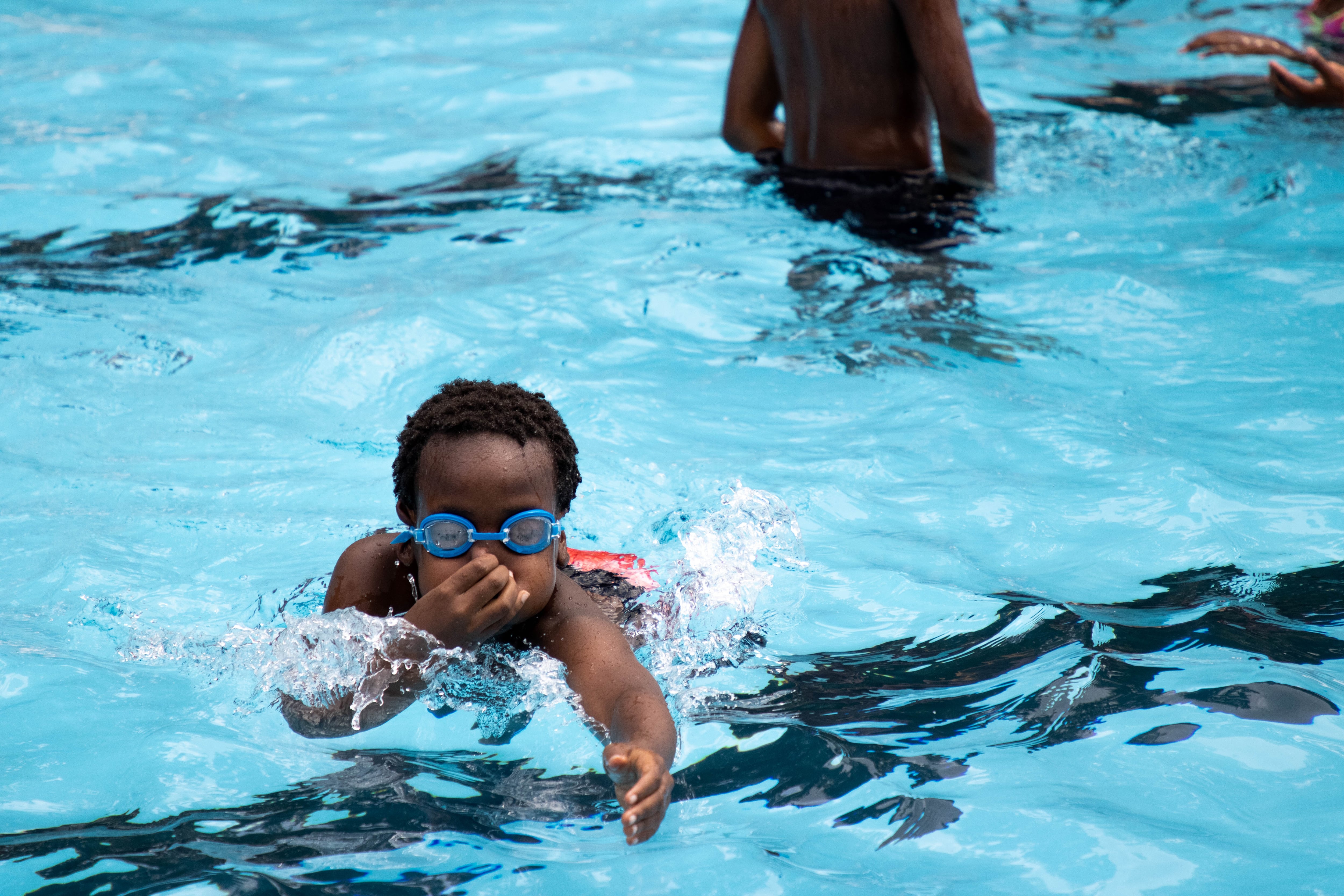This story was originally published on July 11 by THE CITY.
A bigger pool of city money will help up to 6,000 more kids learn to swim this year — while also training teens to become lifeguards amid a continuing shortage at public beaches and pools.
As part of the new city budget, the Department of Parks and Recreation’s Learn to Swim program is set to receive a $5.3 million boost which will, for the first time, open public school pools for free lessons and significantly increase swimming-class enrollment.
The expansion, which is included in the $107 billion spending plan agreed on by the City Council and Mayor Eric Adams late last month, would benefit up to 6,000 youngsters, in addition to the 4,600 who learned to swim last year, according to a Parks Department spokesperson.
Parks Commissioner Sue Donoghue touted the lifesaving value of knowing how to swim and providing broader access to pools.
“We’re building swim equity across the city, bringing more kids and teens access to swimming instruction in their own neighborhoods,” Donoghue said in a statement.
Council Speaker Adrienne Adams pushed to fund more swimming lessons in her State of the City speech in March, with other Council members calling to open pools at public schools year-round. Council members also introduced bills to build more municipal pools, with a focus on underserved neighborhoods, although that could cost much more in the city’s capital budget, a spending plan for long-term, big-ticket items.
Students from various schools will participate in the programs, a Parks Department spokesperson said, though it’s not yet clear which pools will be used.
“When our students know how to swim, they can not only participate in fun and enriching water activities in the summer, but more safely move about their communities and this great city,” said Jenna Lyle, a Department of Education spokesperson.
Still Seeking Lifeguards
The program also will train teens who already know how to swim to be lifeguards, as the city grapples with its second straight summer shortage of lifeguards.
As of last week, a Parks Department spokesperson said 11 miles of beaches and dozens of outdoor pools were staffed by 750 lifeguards — about half the number desired.
The new funding will allow the Parks Department to hire 105 people, including 20 full-time aquatic specialists and 30 lifeguards, the spokesperson said.
The city’s seasonal guards — who work summers at the city’s beaches or outdoor pools — will be eligible for year-round gigs, according to the Parks Department.
The new money will also pay for new equipment and renting private pools in neighborhoods without Parks Department or public school pools.
A 2017 Health Department survey found that, in the five boroughs, a third of Black and Asian students, and a quarter of Hispanic students can’t swim — and “affordability and accessibility to swim lessons is critical for everybody,” said Shawn Slevin, the founder of the nonprofit Swim Strong Foundation.
Last week, a 14-year-old boy drowned at Rockaway Beach after the lifeguards whistled people out of the ocean because of a storm.
In May, two young boys drowned in the Hudson River, which has no lifeguards.
Slevin’s organization, founded 17 years ago, offers swim lessons and teaches New Yorkers of all ages about water safety.
While Slevin said she was encouraged by the city’s recent investment, she said a bigger splash is a must in a city surrounded by water.
“We simply do not have the appropriate infrastructure to teach our citizens how to be safe in, on, and around the water,” she said.





